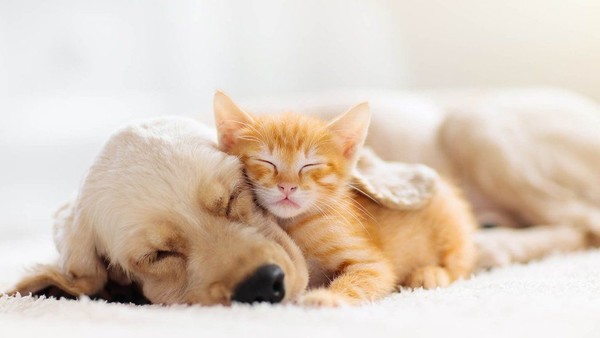As a cat lover, I love spending my time randomly scrolling through cute cat clips on Instagram and YouTube. When I was younger, my family used to “host” some stray cats too — although my parents’ concerns for hygiene prevented me from interacting too closely with them. Aside from that, I’ve never had any pets I consider as a family member or best friend, the kind that would make me cry when they’re gone. As much as I love to play with and take pictures of the cats around Areum Hall (N19) and the W2 building, I find it very intriguing that pet owners treat their pets on an equal footing with other human best friends, or even more — going as far as spending thousands of dollars and sacrificing their own needs for their pets. Human beings are blessed with intellect, morality, and sentience much superior to those of animals — so why is it that most of us feel more empathy towards animals than some other humans?

“If I see an adult stranger stranded on the streets, frankly I wouldn’t be too bothered, but if I see a stray dog, I would promptly rescue them — heck, if I have to choose only one to save, I would definitely go with the dog,” my high school friend once half-joked about this. It might be quite an extreme what-if scenario, but a quick surf through the Internet seems to confirm that my friend’s view is a popular opinion. One study by sociologists at Northeastern University offers an interesting insight on this phenomenon. In the study, college students are asked to read fake news articles on criminal assaults involving a puppy, an adult dog, a human infant, and a human adult. When asked about how much empathy and emotional distress the articles incite, the human infant takes the first place, followed closely by the puppy, the adult dog not too far behind, and the adult human significantly below it.
While an infant is technically human, they are closer in practice to a pet, to put it very bluntly. A baby can be annoying at times, but most of the time they are an ever-loving source of joy for their caregivers, with their innocent smile and sincere laughter. Unlike sufficiently old humans, babies cannot look out for themselves; their needs have to be fulfilled by other older humans. Newborns seem to display an unconditional love for those who take care of them because that is all they ever know. They are yet to realize that they have another choice — to rebel against their caregivers, to pay good with evil. Following this logic, pets can be seen as babies who never grow up. We love to commend pets for their cuteness, innocence, and loyalty, and condemn human beings for being wicked, selfish, and cunning — but is this a fair comparison to make?
Once babies grow into kids with a love for chaos and the ability to reject their caregivers’ love, they will lose most of their innocent charm. Their irritability will soon outgrow their adorableness, and caregivers will start asking why they stop being as loveable as they used to. Similarly, if pets are given the forbidden fruit of human-level sentience, I’m sure that some of them would turn against their loving owners to fulfill their own newly-formed ambitions too. It’s certainly not wrong to say that babies and pets are generally much better living beings than older humans, but it’s important to remember the reason why. They “listen” to our worries and provide us with perpetual support only because they never experience the same problems. They can only feel that their caregivers are sad, and their natural instincts tell them to “sympathize” with the beings who have been kind to them. We struggle to share our dark secrets and troubles with friends and families because there’s always the risk of rejection, invalidation, emotional manipulation, or betrayal. “Communicating” with pets is much easier because they can neither understand our words nor give any comments, both good and bad. We have seen a lot of “scientific evidence” that looking after pets is beneficial for reducing stress, but we often forget that some of these studies are conducted with a small sample size, are riddled with bias, assume that the pet behaves sufficiently well, or all of the above. If we dig deeper into less publicized research, we can find counter-studies that reveal that there is no statistically significant difference in stress levels between pet owners and non-pet owners.
As the most intelligent living beings, it might be in our nature to look after other beings who are less sentient, and thus more vulnerable. While it is perfectly normal, it wouldn’t hurt to ask ourselves if we are still too afraid of facing other humans with different personalities and the ability to disappoint us. At least for me, I finally realized that my complicated view of pets stems from the doubt of why I find them much more appealing than human friends — am I simply running away from having to interact with friends and family members, who don’t have the eternal meekness pets have? If I have a pet, will I love it as a fellow sentient being, or simply as a meek psychological crutch?

